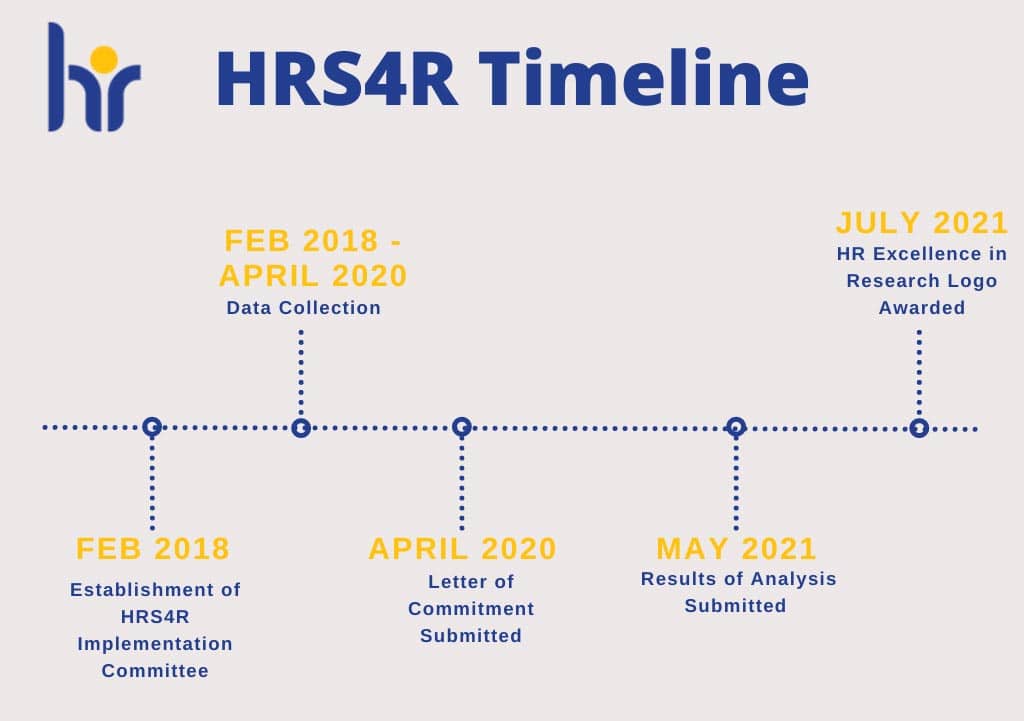The HR Strategy for Researchers (HRS4R) is an ongoing project aimed at improving the working conditions and recruitment processes for researchers, including resident academics and Research Support Officers (RSOs). THINK recently interviewed Dr Karen Cacciattolo to walk us through the work conducted by the HRS4R Implementation Committee at the University of Malta (UM), the significance of this project, past actions taken, and upcoming plans.
The HRS4R is a mechanism launched by the European Commission to support universities, research institutions, and research funding organisations in the implementation of the European Charter for Researchers and a Code of Conduct for the Recruitment of Researchers. Colloquially referred to as the Charter and Code, these documents set forth principles and guidelines to improve research careers and ensure fair and transparent recruitment processes. They emphasize the importance of providing researchers with a stimulating work environment, professional development opportunities, and equal treatment. The HRS4R project consists of three phases: the initial phase, the implementation phase, and an award renewal phase which occurs every three years. Currently, the University of Malta is in the two-year implementation phase, actively working toward implementing the action plan submitted in May 2021.
Timeline of UM’s HRS4R
In February 2018, UM established the HRS4R Implementation Committee to drive the implementation of the Charter and Code. Over the next two years, the committee gathered valuable information through data collection meetings held with various directors and heads of department between February 2018 and April 2020. This information helped identify the existing policies, procedures, and practices in place at that time, and key areas which needed to be improved to align UM with the Charter and Code.
In April 2020, the University submitted a letter of commitment to the EU, expressing its dedication to implementing the HRS4R. Subsequently, a comprehensive analysis of the gaps and areas for improvement took place over the next 12 months. Data was collected through meetings, interviews, and an online questionnaire from resident academics and RSOs.
In May 2021, UM submitted the results of the analysis, along with an action plan, to the EU. This milestone marked a significant step forward in the university’s journey toward enhancing working conditions and recruitment processes for researchers. The action plan outlined strategic initiatives to address the identified gaps and promote positive change.
Recognition and Future Steps
As of 31 July 2021, UM was awarded the HR Excellence in Research logo. This achievement showcases the UM’s commitment to improving conditions for researchers and helps attract top talent from around the world. Furthermore, the logo is a requirement for various EU funding programs such as the prestigious Marie Curie Actions.
Since August 2021, the HRS4R Implementation Committee has made significant strides, such as providing an online handbook for RSOs; conducting training sessions on intellectual property, supervision, and leadership; and sharing information on commercialisation of results and recruitment procedures.

Continuous Data Collection and Feedback
Even though the UM has obtained the HRS4R logo, the HRS4R Implementation Committee continues to meet quarterly to discuss progress in implementing the action plan set out in 2021. Moreover, the committee is also formulating further actions based on continuously collected data and feedback. All relevant information will soon be published on the dedicated HRS4R website.
On the website, a comprehensive list of meetings held by the HRS4R Implementation Committee, including those focused on data collection can be found. Additionally, reports summarizing the results of the questionnaires distributed in 2020 and December 2022 are available for reference. This transparency ensures that all stakeholders are kept informed about the progress made and the future direction of the HRS4R.
The Implementation Phase and Beyond
As part of the current phase of the HRS4R project, the majority of the initial action plan has already been implemented. Out of the 24 actions identified, 22 have successfully been completed.
However, the work of the HRS4R Implementation Committee does not end here. The committee will be submitting a report detailing the implemented actions and presenting an action plan for the next three years. This report will be followed by an audit to evaluate UM’s progress and determine areas that require further improvement. Continuous engagement and collaboration with resident academics and RSOs are vital to ensure that the strategies and initiatives implemented meet the needs and aspirations of our research community.
Participating in the HRS4R project brings numerous benefits to UM and its researchers. By aligning our policies and practices with the Charter and Code, the UM gains access to new funding sources and attracts talented researchers from around the world.
Additionally, implementing the directives outlined in the Charter and Code strengthens UMs alignment with European standards and positions UM as a research-performing organization of high repute. This recognition not only improves its standing within the research community but also enhances its competitiveness for prestigious EU funding programs.
The HRS4R committee encourages all resident academics and RSOs at UM to actively engage with the HRS4R by visiting the dedicated HRS4R webpages regularly to stay informed about progress and access relevant reports while also contributing their valuable feedback. Your participation in data collection activities and input will play a crucial role in shaping and refining the HRS4R strategy.
Together, we can continue to enhance the working conditions and recruitment processes for researchers, fostering an environment that nurtures innovation, collaboration, and excellence. Let us seize this opportunity to shape the future of research at UM and contribute to the advancement of knowledge.





Comments are closed for this article!